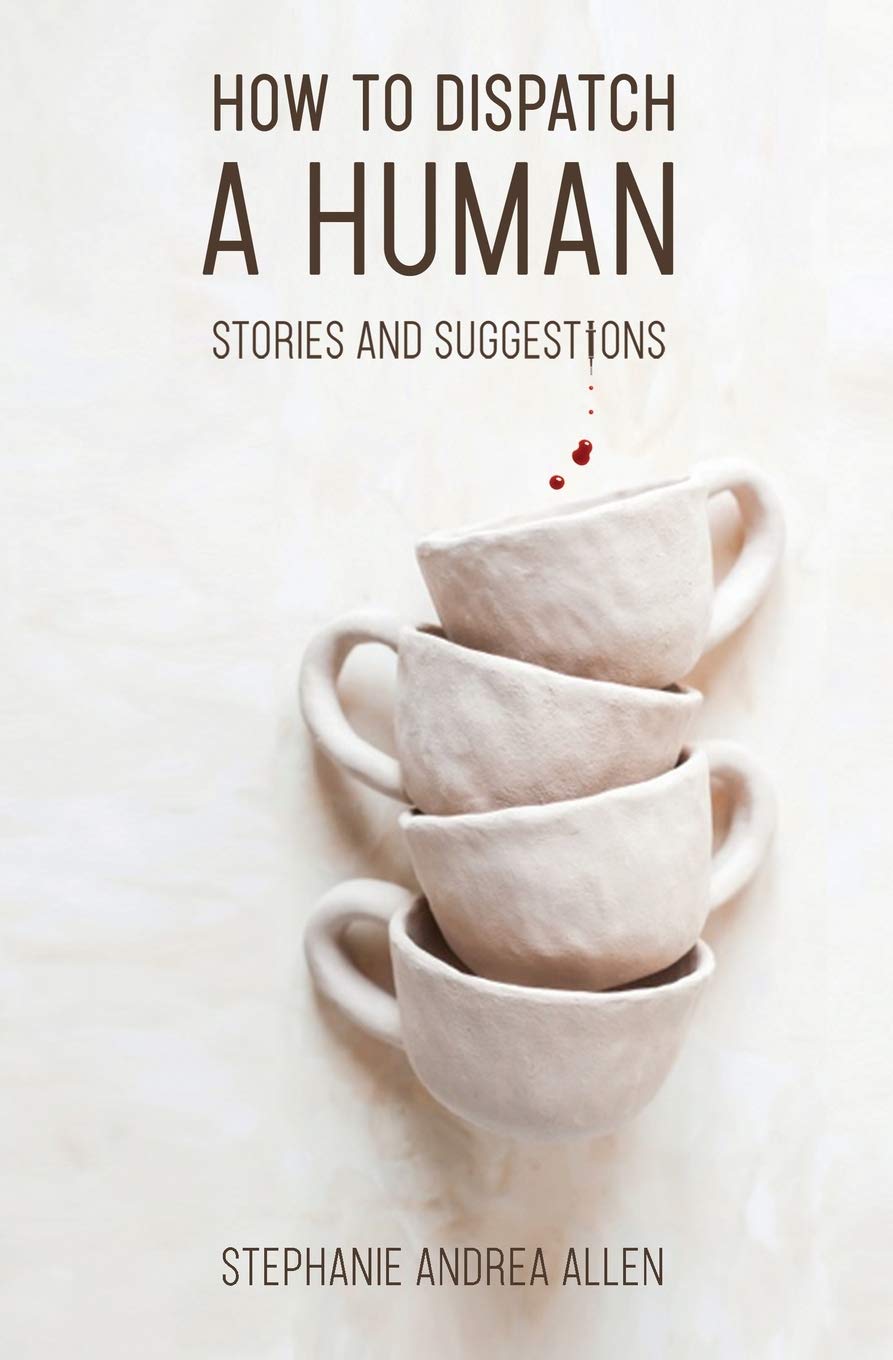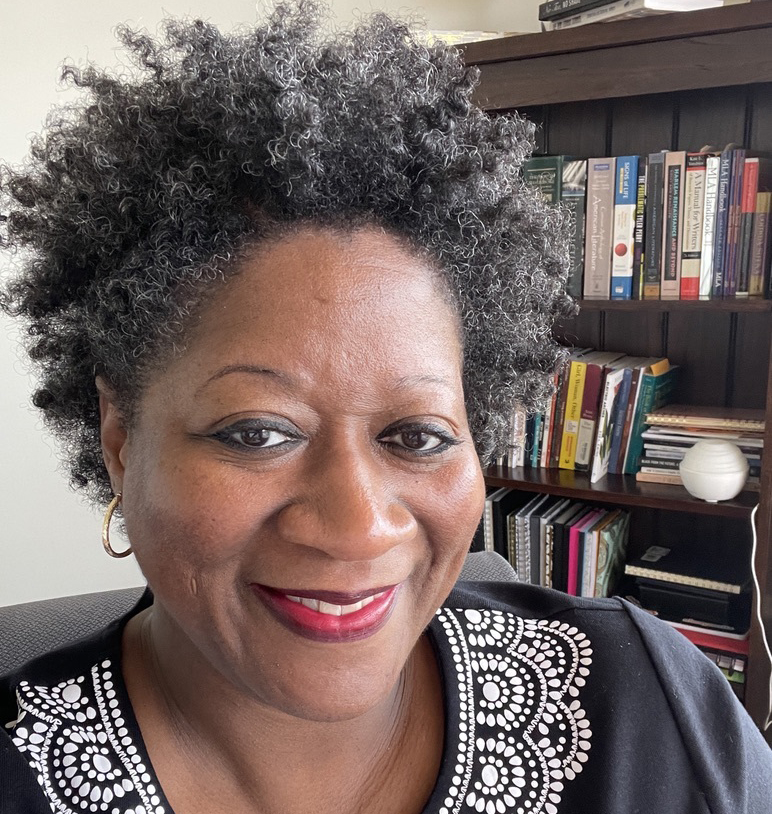Your research centers on Black Lesbian cultural histories and Black feminism. Can you tell us more?
Dr. Allen: For the most part, I look at various expressions of Black lesbians in literature, film, other print and visual media. My current book project focuses on how Black lesbian literature and film reflects the material realities of Black lesbian lived experiences, as well as how they respond to and resist the whole patriarchal system that contributes to the invisibility of Black lesbians in popular culture. You know there is an assumption that people don’t use “lesbian” as an identity-marker, especially this generation, but people still do. I don’t want to make too many assumptions, but based on some of the interviews I’ve been conducting, people are excited about this work.
Your recent publication, How to Dispatch a Human: Stories and Selections, is a mix of near future and speculative fictions. What is speculative fiction?
Dr. Allen: I have been writing fiction since I was a kid, but I did not consider myself a “writer” until just before graduate school. My first book was literary fiction which I also really enjoy writing. But I grew up during the Star Wars era and my dad is a big science fiction fanatic. We were always watching and reading sci-fi so when I became an adult, I still had love for it. A few years ago, I was challenged to write speculative fiction during a writing group that I was facilitating. I had challenged everyone else to write outside their own genre and so I was challenged to write a speculative fiction story. After that I was just hooked, and the story, “Luna 6000,” is in my latest collection, as well as in our anthology, Black from the Future. People are still asking me about that story! But I think your question is what is speculative fiction? It’s anything that is rooted in something that is not quite reality but could be, so it encompasses science fiction, near future fiction, afro-futurism; various types of work fit this genre.
I always think it’s interesting when I hear people say that my work is afro-futuristic because I don’t necessarily see it that way, but I guess it is, because I am writing about Black folks in the future. My work absolutely is about what Black diasporic peoples might be like or how we can envision ourselves in the future, whether that is through technology, or speculative, or magical elements, all of this in some way is Afrofuturistic.
Why do you think this genre is important when telling stories about Black people more generally and Black lesbians in particular?
Dr. Allen: I think one of the reasons is because it is a critique of the overwhelming whiteness of science fiction writ large. Black and Brown folks have historically been excluded from this genre, except for in oppressive situations similar to what we are already experiencing here on Earth. So, to see ourselves in the future is, in and of itself, revolutionary and radical thinking. One of the things I say though is that, even though my book is about people who are dispatched in some way, it’s dark humor and it’s also about joy and love.
Do you have any work that have inspired your own work?
Dr. Allen: I love N.K. Jemison. I am a hardcore fan of hers, I taught the whole Broken Earth trilogy in my grad seminar last semester. So she is always a recommendation for me. I love Octavia Butler for what she envisioned for us writers and her discipline but her work often makes me uneasy. I recommend her for the work that she does, but you have to be ready for the violence that is always present in her work. This is not to say that Jemison’s work does not have violence in it, but it feels very different. I also love weird and strange stories. Alissa Nutting’s book ‘Unclean Jobs for Women and Girls’ is a book that I enjoyed reading. I am also a die-hard fan of short stories. I publish them, I read them, I write them, I just love them. I think it’s a way to engage with literature if you don’t have time for a big juicy book. Don’t get me wrong, I love a huge novel, but I don’t always have time to read them. I also love The Gilda Stories by Jewelle Gomez. Gomez is truly my Black lesbian literary foremother, and she created the first Black lesbian vampire. Her work is amazing.
You engage in both scholarly and non-scholarly writing. In what way do you think these writings are different from each other and how do they inspire each other?
Dr. Allen: During the first summer of Covid, it was really hard to make progress on some of my scholarly work. I eventually got back to it but what I did do during that first summer of Covid was to finish my collection of short fiction. It was a way for me to escape what was happening and I was able to write my way through it. So, when I need a space away from scholarship to think creatively or just to recenter myself, reading and writing fiction does it for me and it brings me joy. Scholarly writing is also very rewarding, but the process is very different, and requires different types of brain work, I guess you could say. Creative writing and literature are life for me. You know, when I was in graduate school, I said that I would not let academia kill my love of fiction and part of holding on to that love is making space to read whatever I want, and to do a little creative writing when I am able.
One thing that brings me joy in scholarly writing is the process. For example, I recently had an article that was accepted with minor revisions, but you know minor always feels like a little more than that in that moment. But as I was finishing up, I really understood the saying “writing for discovery’s sake.” Even just discovering a new way of framing a sentence or a new way of thinking about the argument that I’d made was part of that process of discovery. And that process brings me joy. Academic writing and publishing is difficult, so you need to experience those little moments of joy to see you through the rough periods.
You are also the founder of BLF press. Can you tell us more about BLF’s mission and goals?
Dr. Allen: BLF Press’s goal is to amplify Black, Indigenous, and queer women of color writers. We want to publish the best work that we can, and we have been really successful in that our first two books were nominated for independent press awards. One of our other titles was a finalist for a Lammy in lesbian fiction (Lambda Literary Award), which is the most prestigious award for LGBTQ literature. And we were honored [February 17] for being a finalist for the Constellation awards by the CLMP, the Community of Literary Magazines and Presses, which is a very highly regarded organization for independent presses. We are very proud of that.
We have been around for eight years, and we have published eight books. We have now published over 40 different writers (mostly through our anthologies), so we’ve had an opportunity to feature writers from all over the world. In terms of a shameless plug, my book (How to Dispatch a Human) is out. We also have a really cool collection of poetry from Krystal A. Smith. She is a beautiful poet and such a lyrical writer. And Jewelle Gomez’s book is coming out in June, so we are excited. We are doing the work that lots of publishers claim they want to do in re inclusive publishing, but don’t ever seem to actually do. I want folks to know that we don’t just talk the talk but also walk the walk.



